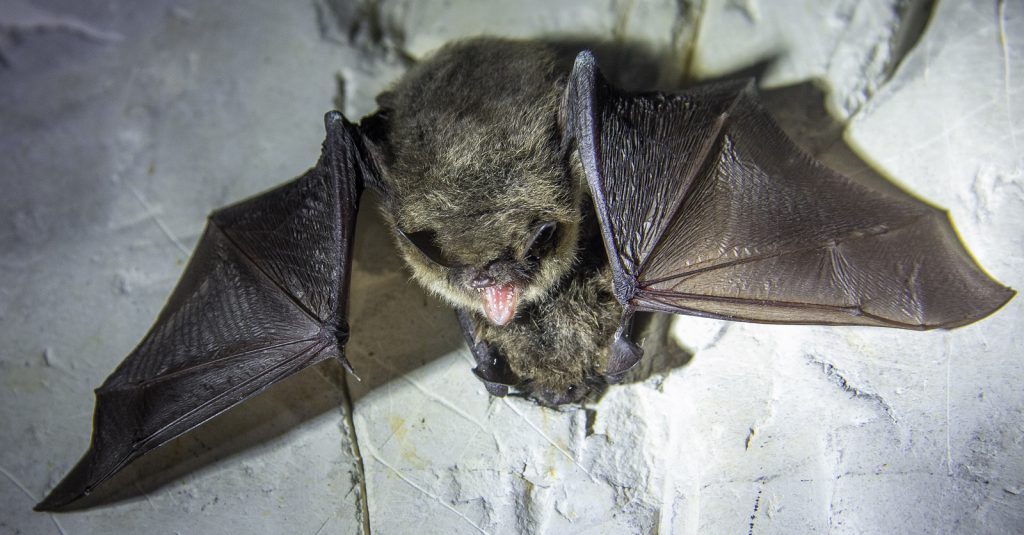Bats are one of nature’s most fascinating mammals. Not only do bats consume thousands of insects each night, their guano is an effective fertilizer used in multiple industries around the world. With all of these positive characteristics in tow; what exactly makes a wild bat so dangerous to humans and pets?
Continue reading to better understand why wild bats are dangerous and should be avoided at all costs by humans and domesticated animals.

Wild Bats Transmit Disease
There are various infectious diseases that bats can contract or carry. These diseases are all hazardous to human and pet immune systems. Bats are known to be carriers of the Rabies virus, Histoplasmosis, Leptospirosis, and even Salmonella. All of these infections can be transferred, transmitted, and passed along to humans and pets; and they are all potentially fatal if left untreated.
➥ Rabies
Rabies is a very well-known disease to the public. This infection is often associated with rabid dogs, raccoons, and rats; however, the truth is, bats are common carriers of the Rabies virus as well. A simple bat bite is all it takes to transfer saliva and bacteria into a person’s blood stream. Some bats are so tiny, a person or pet cannot even tell they were bitten. Once signs of illness begin to show, it is imperative to seek medical attention immediately if a person has been bitten or had contact with a wild bat.
Rabies affects the brain and nervous system, eventually causing death if untreated. Humans are required to get a series of painful shots to eliminate the threat of spreading the virus. Pets, on the other hand, are difficult to save once they become infected. The virus is often times unpredictable because its incubation stages can differ drastically. It can incubate in humans weeks and months before showing signs of contagion.
➥ Histoplasmosis
Histoplasmosis is a disease that affects the upper respiratory system. It is caused by the fungus Histoplasma Capsulatum, which occurs naturally in warm, moist climates. It is widely spread by bat guano and other animal droppings. To become infected, the spores simply have to be inhaled. Common victims of this illness are homeowners with bat infestation problems, or miners and people that work underground or in cavernous environments. Treatment is available and death is entirely avoidable; however, if left untreated, it can be quite devastating to whoever becomes infected.
➥ Leptospirosis
Leptospirosis is another common and potentially fatal infection carried and passed on by wild bats. IT is a bacterial disease that is spread through bodily fluids, usually urine. It is contracted the same way as Histoplasmosis, and usually by people in similar vocations; such as miners, meat workers, farmers, and veterinarians. It is also fatal if left untreated, but it is easily treatable if caught in the early stages.
Indianapolis Bat Removal You Can Trust

Call 317-535-4605 to get rid of bats safely and humanely Indianapolis, Indiana. We are happy to answer your questions and provide free estimate for bat removal and control services. Don’t let bats damage your property and cost you thousands of dollars in renovations! Let our DNR licensed and insured bat removal specialists provide the workable solutions you need.
